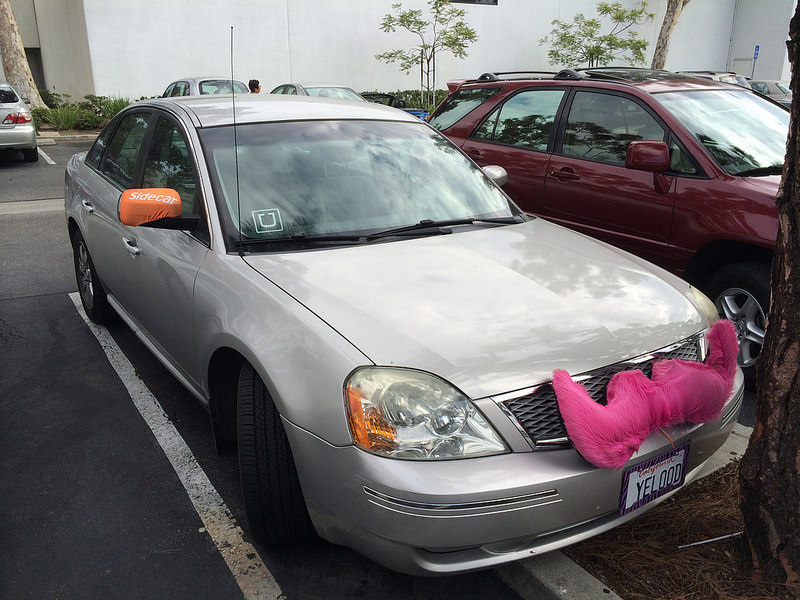| When I stepped from the baggage claim area at an airport in Tennessee recently, getting a ride to the hotel was as easy as opening a ride-share app and pressing a button. I could view photos and ratings of available drivers. Within four minutes, the car I chose pulled up. The driver was a retiree looking for a little extra money and a chance to get out of the house each day. His car was borrowed from his son, “because all I own are pickups,” but it was modern and |
| | clean, and I got to sit in the front passenger seat. The hotel would have liked me to take one of its courtesy vans for $40. The airport probably wanted me to rattle around the backseat of a taxi and pay a regulated fare. As it was, the rideshare company charged me $14, plus any tip I felt like leaving, all handled discretely on the app. That is how competition is supposed to work. This is America, right? Welcome to the free-enterprise battle zone of our times. A lot of cities don’t like what I did. The Salt Lake City Council is considering an ordinance on Tuesday that would make it illegal to take such a ride from the airport to anywhere within city limits (and not coincidentally, most major hotels). You would be OK to travel anywhere outside the city, however. All of which reminds me of an important truth: Innovation and regulation are mortal enemies. The more something is regulated, the less it can change. But when competitive forces are let loose, magic happens. The line from deregulating telephone service to smart phones, for example, is fairly straight. And transportation innovations may have too much momentum to be stopped. In Salt Lake City, as in many cities, the number of cabs allowed to operate is tightly controlled based on what someone with a doctorate degree estimated would keep supply limited enough so cab drivers can make a living. Your ability to find a taxi at a reasonable price has about as much to do with it as market forces, which is to say nothing. As Wesley Hottot, an attorney with the Institute For Justice in Washington, D.C., told me, “That’s bananas in the 21 century.” The Institute For Justice wages war on governments in the United States that try to fine or arrest people for competing in the marketplace. It has tackled licensing laws for everything from hair braiding to casket making, and Hottot believes it will prevail over onerous transportation rules because “consumers already have been shown a better way.” He believes cities have a right to focus on the health and safety of the public, requiring insurance, background checks and vehicle inspections, and nothing else. And the goal should be to do this with the least intrusions possible. I’m actually being too hard on Salt Lake City. Its proposed ordinance is fairly reasonable. It would eliminate a ridiculous requirement that people wait 30 minutes for a car, as well as a $30 minimum fee for limousines. The two rideshare companies that compete in Salt Lake City — Uber and Lyft — would need to obtain $1.5 million in insurance, background checks for driver and city vehicle inspections. But news reports say the companies don’t like those ideas and are threatening to leave the market. I don’t want to get in the middle of that fight, but I’m also not worried. As Hottot said, “I don’t know about those specific companies. They may not be the ones that survive.” But if there is a buck or two to be made, and if the rules are reasonable, someone else will fill the void. As for the airport rule … let’s return to Tennessee. As we ended the trip, my driver acknowledged he had violated a city ordinance by picking me up at the airport. I could have been an undercover inspector. He might have been fined. But he was willing to take the chance. That’s the power of hustling for a fare. All of which means transportation innovations are probably here to stay no matter what cities do. |


 RSS Feed
RSS Feed

